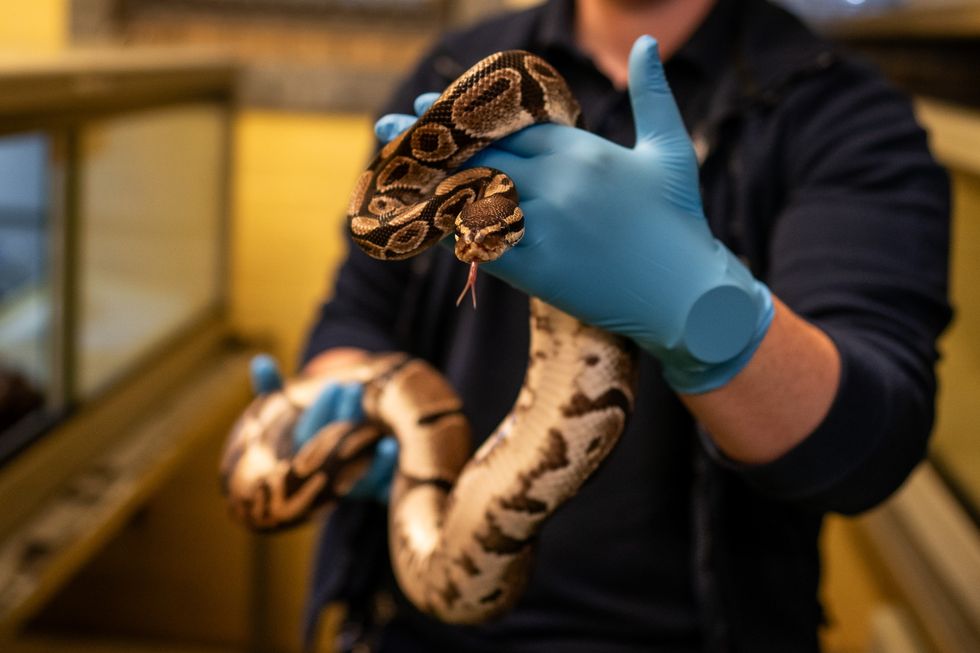Woman wrestled giant python for two hours before being rescued from its coils

Arrom Arunroj, 64, is held in the coils of 4-metre-long python | Phra Samut Chedi Police | Poh Teck Tung Foundation

Arrom Arunroj said it took rescuers about 30 minutes to free her
Don't Miss
Most Read
Latest
A woman had to be freed from the coils of a huge snake that had been wrapped around her body for almost two hours.
Arrom Arunroj was washing dishes at the back of her home on the outskirts of Bangkok, Thailand, when the four-metre-long snake attacked her on Tuesday evening.
The 64-year-old hospital maid said it took rescuers about 30 minutes to free her from the python's clutches.
She was given first aid and then rushed to a nearby hospital. Rescuers said she had several bite wounds, and while pythons are not venomous but their bite can cause infection.

Arrom Arunroj is held in the coils of four-metre-long python
|Phra Samut Chedi Police | Poh Teck Tung Foundation
While washing the plates, she said she felt a sharp pain on her right thigh, looked down and saw a huge snake attacking her. She grabbed its head and tried to pull it off her, but could not fight its strength. She rolled to the ground, with the snake wrapping itself around her body.
The alarm was raised after a neighbour who heard her increasingly hushed screams for help called the police and Poh Teck Tung Foundation, a rescue service.
After forcing themselves into the dark, locked house, it took the team more than half an hour to free the woman - who by this point was barely conscious.
She told local media: "I have never encountered an event like this in my life."
LATEST DEVELOPMENTS

A Royal Python (file pic)
|PA
Several python species live in Thailand, including the Reticulated python, the world’s longest snake.
Several years ago a python was filmed regurgitating a pet dog in the country’s south, while as much as 80 per cent of calls to emergency hotline in Bangkok relate to python sightings.
While the python itself is not poisonous, the southeast Asian country is also home to more than 40 venomous species, from cobras to the Malayan pit viper.
The capital city of Bangkok is home to one of the region’s largest antivenom production "arms." Across Asia, roughly 242,600 people are bitten and 15,900 still die after snake bites every year.
Snakebite is considered a neglected tropical disease worldwide, in part because antivenoms are expensive, laborious to produce, and can often trigger serious allergic reactions.
There is now a major push to improve these treatments, or even develop a universal antivenom.










